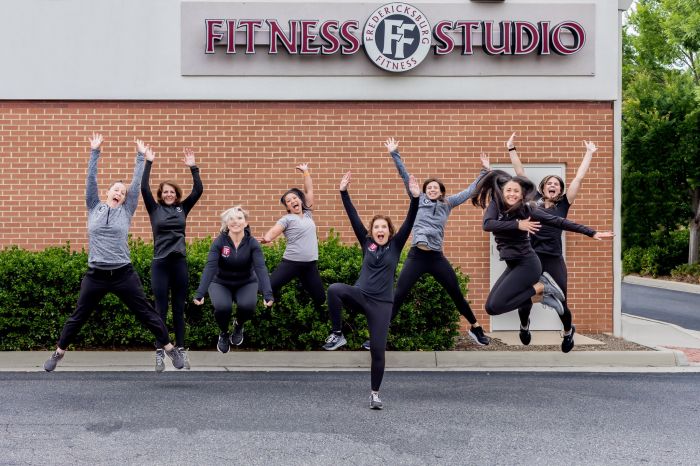
Getting healthy is typically the most popular resolution people make each January. However, Within weeks, that goal starts to fade for many people as they fall back into their old habits, providing them with the same old outcomes. Making small habit changes can lead to significant results, and the smaller habits are often easier to stick to in the long term, helping people attain their reasonable health goals better.
"We have helped many people to reach and maintain their health goals," explains Jennifer Scherer, a registered dietitian nutritionist, medical exercise specialist, certified personal trainer, and owner of Fredericksburg Fitness Studio. “We do this with a varied approach, which includes a variety of health habits.”
We are creatures of habit and often do the same things repeatedly. This happens even when we know we want to do something else. It takes a commitment to change those habits to make progress. According to research published in the British Journal of General Practice, creating a habit takes around 10 weeks. Those who can diligently stick with something for that long will begin doing it without giving it much thought.
Here are some simple daily habits anyone can do to attain health goals this year:
Wake up grateful. How we wake up and what we say to ourselves in the morning sets the tone for the day. Upon waking each morning, have gratitude for another day, and remind yourself that you will make healthier choices that day.
Prioritize self-care. It is easy, especially for women, to put everyone else's needs before theirs. Make a new habit of prioritizing self-care. Choose one thing each day to do to help care for yourself, even if it's doing deep breathing exercises for 5 minutes or taking a walk around the block after dinner.
Move more. If exercising is something you have shied away from or don't care for, make smaller goals. Decide to move more throughout the day. Look for a physical activity you enjoy or engage in that will get you moving more but seem less like a workout (i.e., parking the car farther out, taking the stairs instead of the elevator, etc.).
Eat more produce. Add produce rather than remove things from your diet that most people need help with. Make a habit of eating some produce with every meal. Adding that one thing will automatically help you reduce the other stuff without trying to boost your nutritional intake.
Get more sleep. Getting enough sleep is crucial to living a healthy life. Those who are used to staying up late may want to increase their bedtime by 30 or 60 minutes to start, giving them more sleep per week. According to research published in the journal Nutrients, sleep and eating have a physiological link. They report that insufficient sleep is a risk factor for overeating and weight gain.
“It doesn't have to be complicated or painfully time-consuming to get healthier,” Scherer added. “You can keep it simple, but the little daily habits will go a long way toward creating a healthier life. We can help you set some goals and be the support you may need to see them through.”
As a registered dietitian, Scherer helps people improve their diet, plan for sustainable weight loss, and help people include healthier food choices. She and her team offer nutrition coaching services, wellness, personal training, in-home medical training, virtual personal training, and a Pilates reformer program, which features a versatile machine designed to provide resistance. It can be used when standing, sitting, or lying down. All workouts on it are custom-tailored for the individual to address their physical fitness concerns.
Fredericksburg Fitness Studio doesn't offer memberships as other gyms do. They offer private customized fitness programs that are available by appointment. Many people who go to the studio are referrals from physical therapists and doctors. The wellness professionals at the studio communicate with the medical teams to keep them up to date on patient progress. To learn more about Fredericksburg Fitness Studio, visit the site: https://www.fburgfitness.com.










